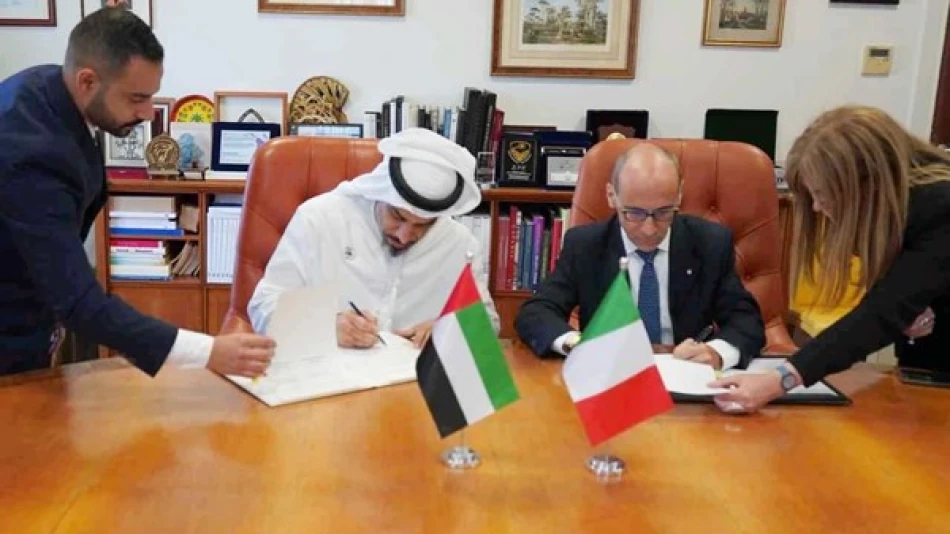
الإمارات وإيطاليا توقعان اتفاقية شراكة استراتيجية لمكافحة الفساد
UAE and Italy Form Strategic Alliance to Combat Global Corruption Through Advanced Governance Framework
The UAE State Audit Institution has signed a landmark memorandum of understanding with Italy's National Anti-Corruption Authority, establishing what both nations describe as an "advanced model" for international cooperation in integrity and transparency. This partnership represents a significant shift from traditional bilateral agreements toward building comprehensive global anti-corruption systems, positioning both countries as leaders in international governance reform.
Beyond Traditional Cooperation: A New Institutional Framework
The agreement, signed by UAE State Audit Institution President Hamid Obaid Abu Shabas and Italian National Anti-Corruption Authority President Giuseppe Busía, transcends conventional diplomatic frameworks. Rather than focusing solely on information sharing, the partnership aims to create integrated methodologies for combating corruption on a global scale.
This approach reflects a growing recognition among developed nations that corruption has evolved beyond national boundaries, requiring sophisticated, coordinated responses. The UAE-Italy model could serve as a template for similar partnerships between emerging and established economies.
Strategic Focus Areas and Implementation
Knowledge Transfer and Capacity Building
The partnership prioritizes developing effective mechanisms for exchanging expertise and knowledge, with particular emphasis on updating tools and methodologies to address complex global challenges. Advanced training programs will prepare both national and international personnel, suggesting an ambition to influence anti-corruption practices beyond the two signatory countries.
International Forum Coordination
Both nations will coordinate positions in international forums to enhance dialogue around best practices in good governance. This coordination could amplify their influence in organizations like the OECD, UN Office on Drugs and Crime, and various G20 working groups on anti-corruption.
UAE's Vision 2071 and Global Positioning
The initiative aligns directly with the UAE's Vision 2071, which aims to establish the country among the world's best by the centenary of its union. Governance and anti-corruption efforts serve as fundamental pillars in this sustainable development journey, indicating that transparency initiatives are not merely compliance exercises but strategic national priorities.
This positioning is particularly significant given the UAE's role as a major financial hub. Enhanced anti-corruption frameworks could strengthen investor confidence and support the country's ambitions to compete with established financial centers like Singapore and Switzerland.
Market and Investment Implications
For international investors and multinational corporations, this partnership signals both countries' commitment to regulatory transparency and institutional reliability. Italy's inclusion brings European Union regulatory standards into the framework, potentially creating more seamless business environments for companies operating across Middle Eastern and European markets.
The emphasis on "innovative standards" suggests both nations recognize that traditional anti-corruption measures may be insufficient for addressing modern challenges, including digital fraud, cryptocurrency-related crimes, and complex international money laundering schemes.
Global Context and Precedent
This partnership emerges as international pressure for transparency intensifies, particularly following recent global scandals and the implementation of stricter beneficial ownership requirements across major financial centers. Unlike reactive compliance measures, the UAE-Italy agreement appears proactive, potentially providing both countries with competitive advantages in attracting legitimate international business.
The collaboration also reflects broader geopolitical trends, with Middle Eastern nations increasingly seeking partnerships with established European institutions to enhance their international credibility and regulatory sophistication.
Most Viewed News

 Layla Al Mansoori
Layla Al Mansoori






